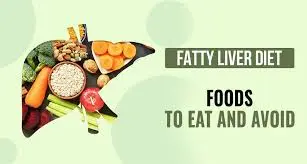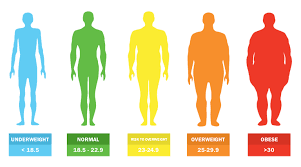Carbohydrates
Carbohydrates are vital nutrients that include fiber, starches, and sugars. To enable you to operate, your body transforms carbs into glucose or blood sugar. Fruits, vegetables, and whole-grain diets include complex carbohydrates, which are less likely than simple carbohydrates (sugars) to cause a blood sugar surge.
What are carbohydrates?
- One kind of macronutrient that may be present in some meals and beverages is carbohydrates. Carbohydrates include sugars, starches, and fiber.
- Protein and fat are additional macronutrients. To be healthy, your body needs a balance of macronutrients.
What is the function of carbohydrates?
- Carbs are the main fuel that your body uses. They provide you with the energy you require to operate.
The procedure is as follows:
- Your digestive system starts to break down carbohydrates when you ingest them.
- The carbohydrates, also known as glucose or blood sugar, are absorbed by your circulation.
- Insulin is released by your body to guide glucose to your cells for energy.
- Your body will retain excess glucose in your muscles or liver. Your body turns excess glucose into fat once you’ve used up all of the glucose storage space in those areas.
- Your blood sugar is influenced by the quantity of carbohydrates you eat.
- Consuming large amounts of carbohydrates might cause blood sugar levels to rise. Hyperglycemia, or elevated blood sugar, can increase your chance of developing diabetes. Some people who don’t eat enough carbohydrates get hypoglycemia or low blood sugar.
What distinguishes simple carbs from complicated ones?
- The chemical makeup of a meal and the rate at which it is digested by your body define whether a carb is complicated or simple. Complex carbohydrates are less likely to result in blood sugar rises since they take longer for your body to digest.
- Conversely, simple carbohydrates digest more quickly. Thus, they have a tendency to raise blood sugar levels. Consuming too many simple carbs might cause weight gain. They may also increase your risk of heart disease, diabetes, and high cholesterol.
Are simple carbohydrates unhealthy?
- It may be easy to categorize carbohydrates as either “good” or “bad.”
- Although they aren’t “bad,” simple carbohydrates don’t provide your body with the same nutrients as complex carbohydrates.
- Eating a lot of nutrient-dense complex carbohydrates and consuming simple carbohydrates sparingly is the recommended course of action. Consult your healthcare practitioner for individualized dietary advice.
What kinds of carbs are there?
Three kinds of carbohydrates can be found in foods and beverages:
- Fiber.
- Starches.
- Sugars.
- In contrast to fiber and starches, which are complex carbohydrates, sugars are simple carbohydrates. The phrase “total carbohydrates” may also appear on a food’s nutritional label. This is a combination of the three types of carbs.
Fiber:
- Plant-based foods which include fruits, vegetables, and wholegrain items can include fiber. Meats and dairy products are examples of animal items that lack fiber.
- Fiber comes in two forms: soluble and insoluble. It is a complex, healthful carbohydrate. Fiber is difficult for your body to digest, however, soluble fiber dissolves in water while insoluble fiber does not. One type of insoluble fiber is corn. Both soluble and insoluble fiber stimulate and facilitate digestion as they go through the intestines. Additionally, fiber decreases cholesterol, controls blood sugar, and prolongs feelings of fullness.
High-fiber foods include:
- Peanuts, pinto beans, lima beans, chickpeas, lentils, and black beans are examples of legumes and beans.
- Fruits, particularly those having seeds (berries) or edible skins (apples and peaches).
- Nuts and seeds: almond, walnut, pumpkin, sunflower, and so on.
- Vegetables such as squash, broccoli, maize, and Brussels sprouts.
Starches:
- In addition to providing your body with vitamins and minerals (micronutrients), starches are complex carbohydrates. Your body has a harder time digesting complex carbohydrates. This keeps blood sugar levels steady and prolongs feelings of fullness. While not all starches fall under this group, many do.
Starchy carbohydrates are present in:
- Beans and legumes, including chickpeas, kidney beans, lima beans, black beans, and lentils.
- fruits like apples, melons, and berries.
- vegetables, such as potatoes, maize, and peas.
Sugars:
- One kind of simple carbohydrate is sugar. Your body breaks down simple carbohydrates quickly. Levels of blood sugar consequently spike and then fall rapidly. You could experience a spike in energy after consuming sugary meals, which is followed by fatigue.
Sugars come in two varieties:
- Sugars that occur naturally, such as those in milk and fresh fruit.
- Added sugars, such as those in soda, juice, canned fruit, and sweets. Ice cream, candy bars, and cookies are examples of sweets.
There are several names for sugar. Sugar may be identified on food labels as:
- Agave nectar.
- Cane syrup or corn syrup.
- Dextrose, fructose, or sucrose.
- Honey.
- Molasses.
- Sugar.
- To maintain appropriate blood sugar levels, you must limit your sugar intake.
- Additionally, sugary drinks and meals frequently include more calories, which can lead to weight gain. Stay Away from candy, juices, fruit drinks, soda, white flour, sweetened beverages, and other processed meals and drinks.
- For the majority of persons designated female at birth (AFAB), no more than 25 g (6 teaspoons or 100 calories) of additional sugar per day.
- For the majority of persons designated male at birth (AMAB), no more than 36 g (9 teaspoons or 150 calories) of added sugar per day.
How much carbs should one consume each day?
- There is no set amount of carbs that should be consumed each day. Your age, sex, health, level of activity, and weight goals all affect how much is best for you. Some diabetics find that counting carbohydrates helps them control their blood sugar levels.
a healthy plate approach for the majority of folks. You ought to fill out:
- Assemble fruits and vegetables on half of your plate.
- Use whole grains on a fourth of your dish.
- A protein source (meat, fish, beans, eggs, or dairy) should make up one-fourth of your dish.
Is a diet that contains little or no carbohydrates healthy?
Some people reduce their consumption of carbohydrates in an effort to lose weight. Additionally, several medical professionals advise the ketogenic diet for epilepsy and other illnesses.
Following these limitations over an extended period of time might be challenging. Large quantities of animal fat and oils are a feature of several carb-restrictive diet programs. Your risk of heart disease may rise as a result of certain foods. Before making significant dietary adjustments or decreasing carbohydrates, consult your healthcare practitioner.








62 Comments